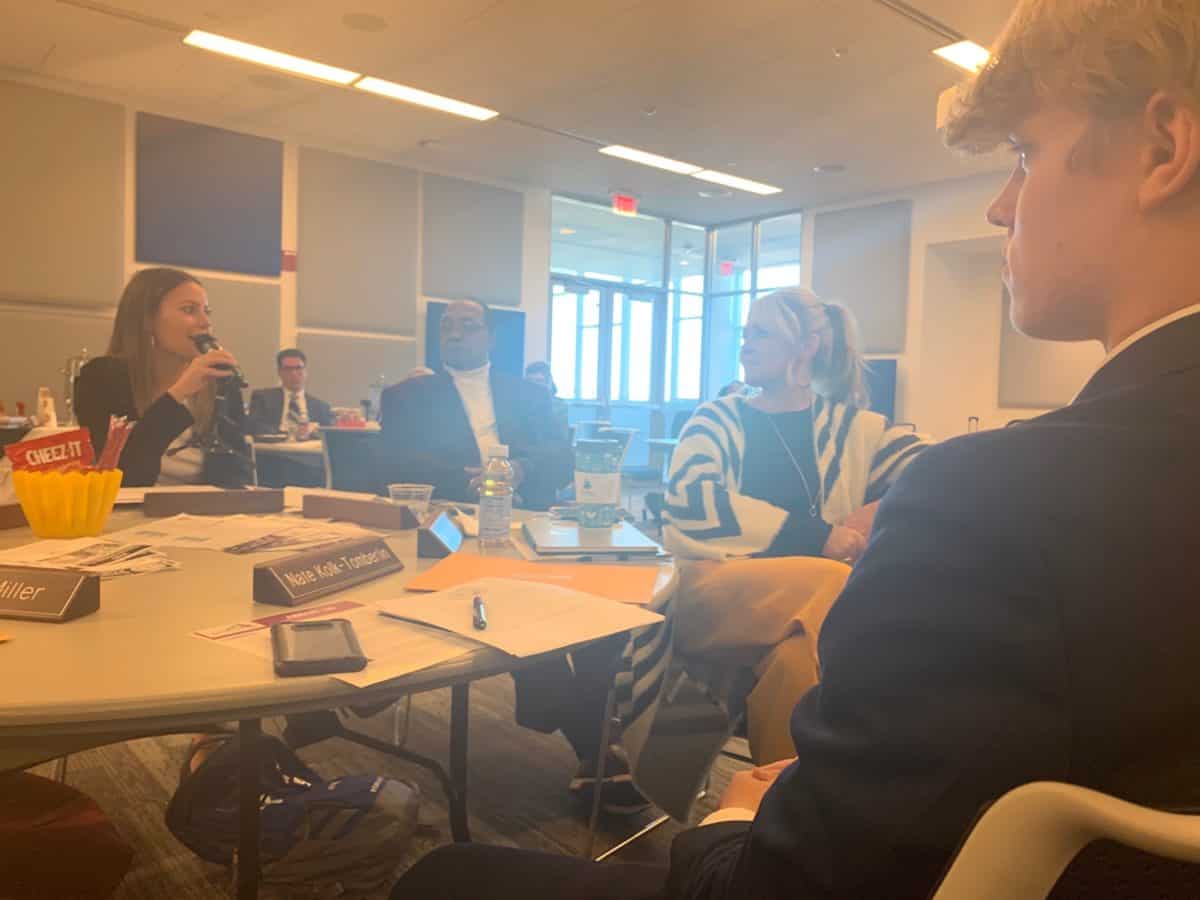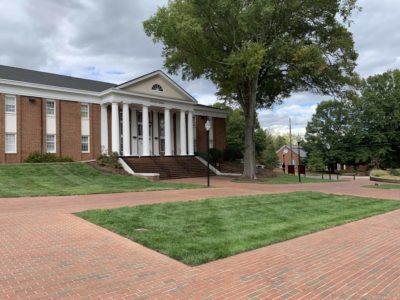

With a Tomberlin at the podium during a meeting of the State Board of Education, it is unusual for silence to fill the time allotted for questions. Tom Tomberlin, the director of district human capital at the Department of Public Instruction, is accustomed to the bevy of tough questions.
This time, though, it was his son — Nate Kolk-Tomberlin — standing at the podium during December’s meeting.
“His dad gets up here and takes some hits, we can’t let him off that easy,” one Board member joked.
The younger Tomberlin, a junior at Apex High School in Wake County, is one of two student advisors to the State Board, along with Meredith Gaskill, a senior at Carson High School in Rowan-Salisbury Schools.
“It’s an important voice,” Board chair Eric Davis said. “We’re thrilled to have that voice and that perspective back at the table.”
Student advisors were long-included on the State Board until a hiatus from 2016-2019 while state officials argued over a law that rearranged some responsibilities of the superintendent and transferred to him certain powers of the Board, including the authority to appoint student advisors.
Many around the state, including students, argued for an end to the hiatus.
“If we are in the room where the decisions are made, we can clearly and intentionally help you to structure our education in the most effective and successful way possible,” said Greear Webb, who was a high school senior when he advocated during last April’s Board meeting. “Students are those who stand to gain or lose from changes that take place in meetings like this, so students should have a seat at the table.”
The student advisors do not vote on agenda items, but they are encouraged to speak up during meetings and talk with Board members during breaks. The process for them begins a week before the Board meeting, when they receive an email with the month’s agenda and all materials.
“I research from then on and try to learn everything I can about the agenda items,” Gaskill said. “Which is very difficult because there are a lot of acronyms I don’t know and a lot of things that go over my head. But I try my best to figure out how it relates to my experiences as a high school student. And then I try to use my research and listen in the meetings and if I have a strong opinion on something or if one of my experiences relates to one of the agenda items, then I’ll share it.”
Gaskill and Kolk-Tomberlin sit together during the meetings and will often have side discussions about how topics relate to their own high school experiences. They each also use their time in school to poll other students and get their thoughts on past or upcoming Board meeting topics. Gaskill even sends Google forms out through social media soliciting input from her classmates and students at other high schools.
“We have to be objective about it,” Kolk-Tomberlin said. “I don’t want to voice only what I would say about a topic. I have to quell that desire to speak personally about it and try to present what other students think also.”
And the Board is interested in that perspective. At an October meeting, one Board member paused in the middle of discussions about remediation courses involving college and career readiness requirements for high school students to invite feedback from the student advisors. It was their second month on the job.
“This is going to impact some juniors and mostly seniors, so I think it’s important to hear your thoughts,” said Board member JB Buxton.
Added Gaskill: “All of the board members have been so vocal about how excited they are to have the student voices back in the room. I think it is so important because while they are extremely knowledgeable about their subject, it’s different now being in high school — our world has changed so much between when they were going through high school and now. There’s a lot of different experiences Nate and I have going to school today, so we have an interesting perspective.”
The call to serve came naturally for both student advisors, inspired by family connections. Kolk-Tomberlin has seen his father’s work up close and heard about his interactions with the Board. He wanted to experience it first-hand and gain insight into education policy in the state.
Gaskill’s mother is a college professor and her sister is a high school English teacher. Education was dinner conversation for a long time.
“Education has just always been an important part of my life,” she said. “And I’ve always been involved in discussions with my mom and sister about what was going on in the educational space. And I think that just kind of shaped the importance of education in my life.”
Gaskill said the experience has opened her eyes to possibilities — both in terms of future leadership experiences and career prospects. Kolk-Tomberlin said it’s broadened his perspective, too. Specifically, it’s made him more interested in how policy happens and shows up in people’s daily lives.
But it hasn’t convinced him he should follow in his dad’s footsteps.
“Maybe not that,” he said. “That looks like a pretty stressful job.”


